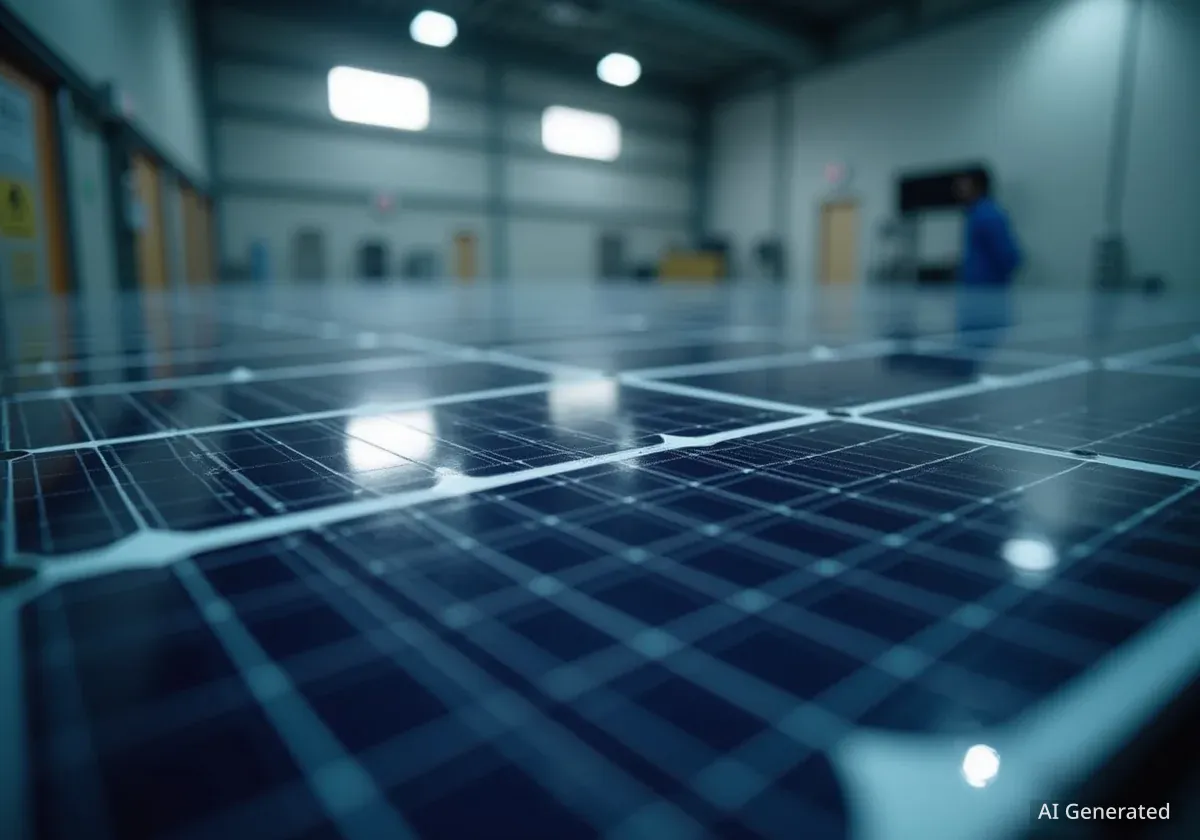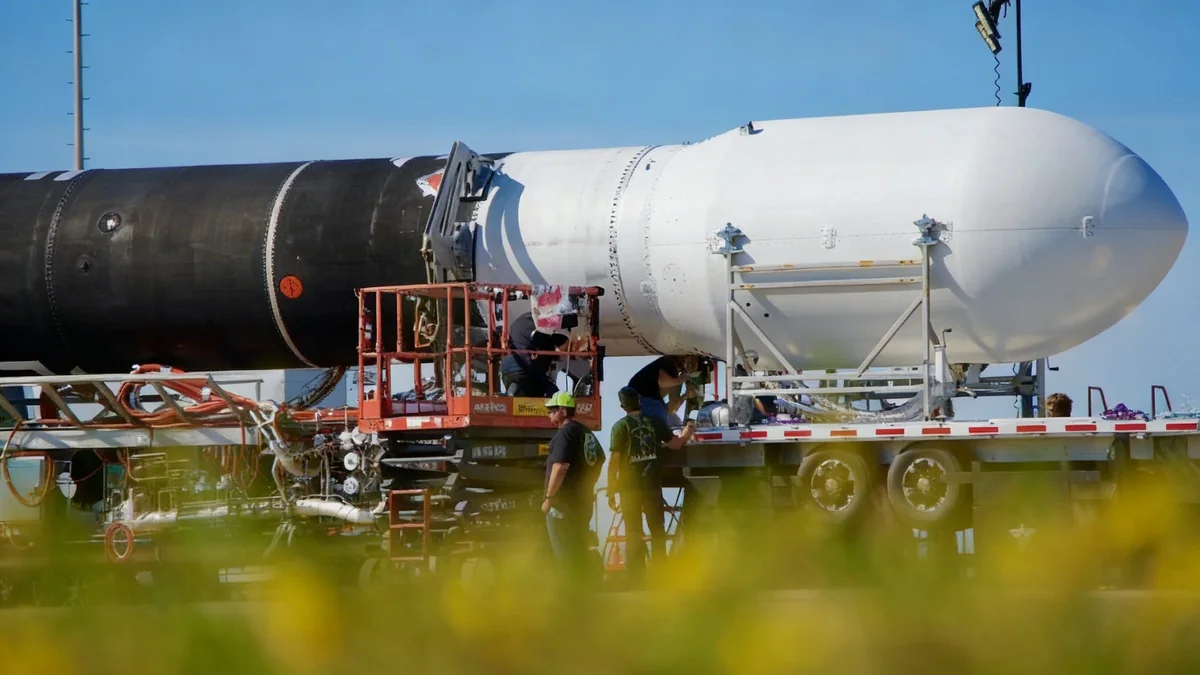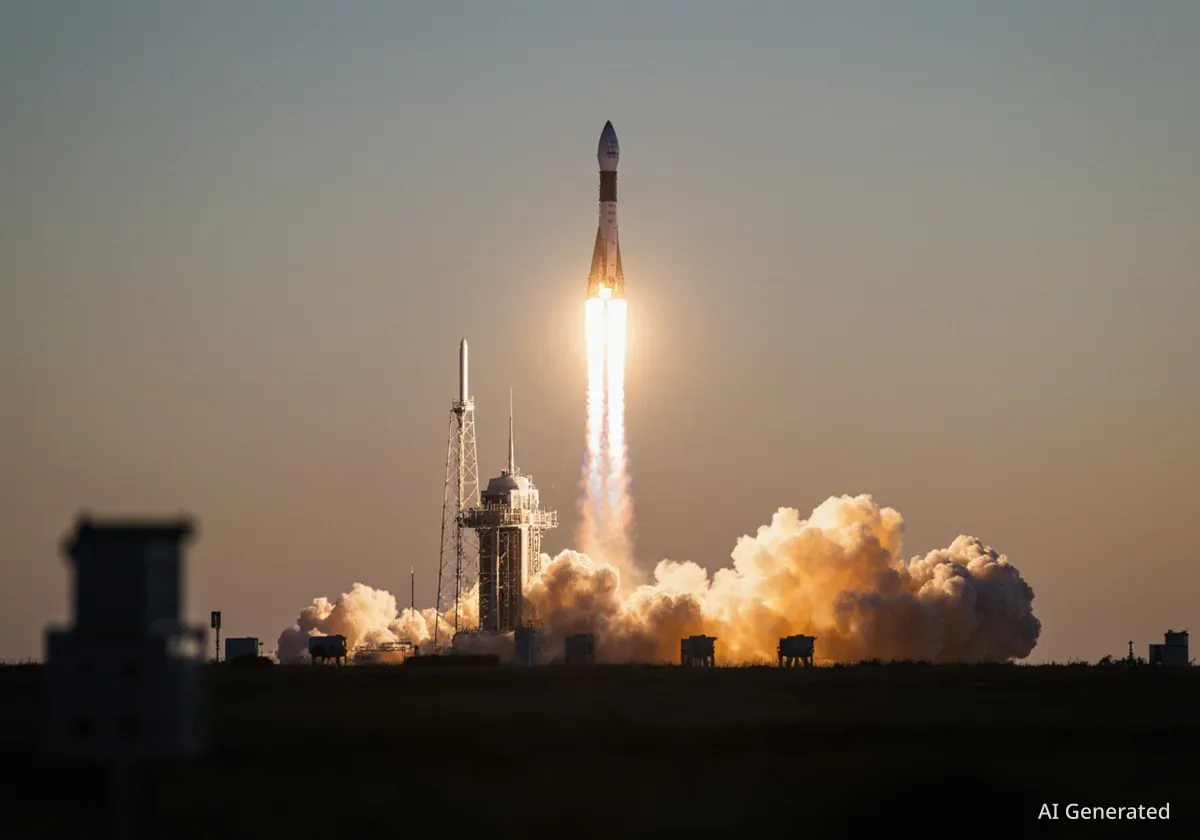South Korean firm Flexell Space and German company Dcubed GmbH have formalized a strategic partnership by signing a Memorandum of Understanding (MoU). The agreement, announced during the International Astronautical Congress (IAC) 2025 in Sydney, Australia, aims to combine their expertise in space power and deployable technologies to create advanced solar arrays for satellites.
This collaboration will integrate Flexell Space's lightweight, flexible solar cells with Dcubed's established deployable systems. The partnership is expected to produce more efficient, cost-effective, and scalable power solutions for the global satellite industry, while also fostering greater technological cooperation between Europe and Asia.
Key Takeaways
- Flexell Space and Dcubed signed a Memorandum of Understanding at the International Astronautical Congress (IAC) 2025 in Sydney.
- The partnership focuses on developing next-generation solar arrays for satellites by combining Flexell's lightweight solar cells with Dcubed's deployable structures.
- Flexell's technology claims a 90% reduction in weight and a 60% reduction in cost compared to traditional space solar cells.
- The collaboration strengthens technological ties between the European and South Korean space sectors.
A Strategic Agreement for Space Power
The Memorandum of Understanding was signed on October 13, 2025, marking a significant step for both companies. The agreement establishes a formal framework for Flexell Space and Dcubed to explore joint opportunities and leverage their complementary technologies.
By working together, the two companies plan to address the growing demand for reliable and high-performance power systems in the commercial satellite market, particularly for small satellite (SmallSat) constellations. The partnership unites South Korean innovation in solar cell technology with German engineering in mechanical deployment systems.
What is a Memorandum of Understanding?
A Memorandum of Understanding (MoU) is a non-binding agreement between two or more parties that outlines the terms and details of a mutual understanding or accord. It is often the first formal step in establishing a long-term partnership, setting the stage for future binding contracts and collaborative projects.
Combining Specialized Technologies
The core of the partnership lies in integrating two distinct but highly complementary technologies. Flexell Space produces advanced solar cells, while Dcubed specializes in the mechanisms that deploy them in orbit.
Flexell Space's Lightweight Solar Cell Innovation
Flexell Space has developed a new type of solar cell designed specifically for the harsh environment of space. According to the company, this technology offers significant advantages over the rigid, heavy solar cells traditionally used on satellites.
Taehun Ahn, CEO of Flexell Space, highlighted the benefits of their product. "Flexell Space’s innovative solar cells are characterized by 90% weight reduction, 60% cost savings, and enhanced durability against radiation and extreme temperatures compared to conventional space solar cells," he stated.
Key Performance Metrics
- Weight Reduction: 90% lighter than conventional space solar cells.
- Cost Savings: 60% less expensive to produce.
- Enhanced Durability: Improved resistance to space radiation and extreme temperature fluctuations.
These improvements can lead to lower launch costs, as weight is a primary driver of expense in sending objects to orbit. The increased durability also suggests a longer operational lifespan for satellites equipped with this technology.
Dcubed's Proven Deployable Systems
Dcubed GmbH, based in Germany, provides the critical mechanical systems that allow large solar arrays to be folded into a compact form for launch and then unfolded once the satellite reaches orbit. These deployable structures must be extremely reliable, as a failure to deploy would render a satellite's power system useless.
The company has a track record of providing proven deployable systems for various space applications. This expertise in reliable, precision-engineered mechanisms is essential for ensuring that Flexell's flexible solar arrays can be effectively utilized in space.
Market Impact and Future Outlook
The collaboration is positioned to create a new class of power solutions for the satellite industry. By combining lightweight cells with reliable deployment systems, the partners aim to offer scalable products that can be adapted for a wide range of satellite sizes and mission requirements.
In a statement, Taehun Ahn explained the strategic vision behind the partnership.
"This collaboration demonstrates the global recognition of our solar cell technology... By combining our expertise in lightweight solar cells with Dcubed’s proven deployable solar array systems, we can deliver a new class of reliable, scalable, and sustainable power solutions for satellites."
The focus on scalability is particularly important for the growing SmallSat market, where standardized, cost-effective components are in high demand. Providing a complete, integrated solar array solution could simplify the satellite manufacturing process for many companies.
Antonio Pedivellano, Director of Deployables at Dcubed, echoed this sentiment, emphasizing the collaborative spirit of the agreement.
"Collaborating with Flexell Space is an important step toward fostering new opportunities in space technology. Together, we will explore solutions that meet the evolving needs of the satellite industry worldwide."
Fostering Europe-Asia Space Cooperation
Beyond the technological and commercial implications, the MoU between Flexell Space and Dcubed signifies a strengthening of ties between the European and South Korean space industries. Such international partnerships are becoming increasingly common as the global space economy expands and becomes more interconnected.
This agreement creates a pathway for further cooperation and opens up new markets for both companies. By pooling their resources and expertise, they can compete more effectively on a global scale. The partnership serves as a model for how specialized technology firms from different regions can collaborate to drive innovation in the highly competitive space sector.





